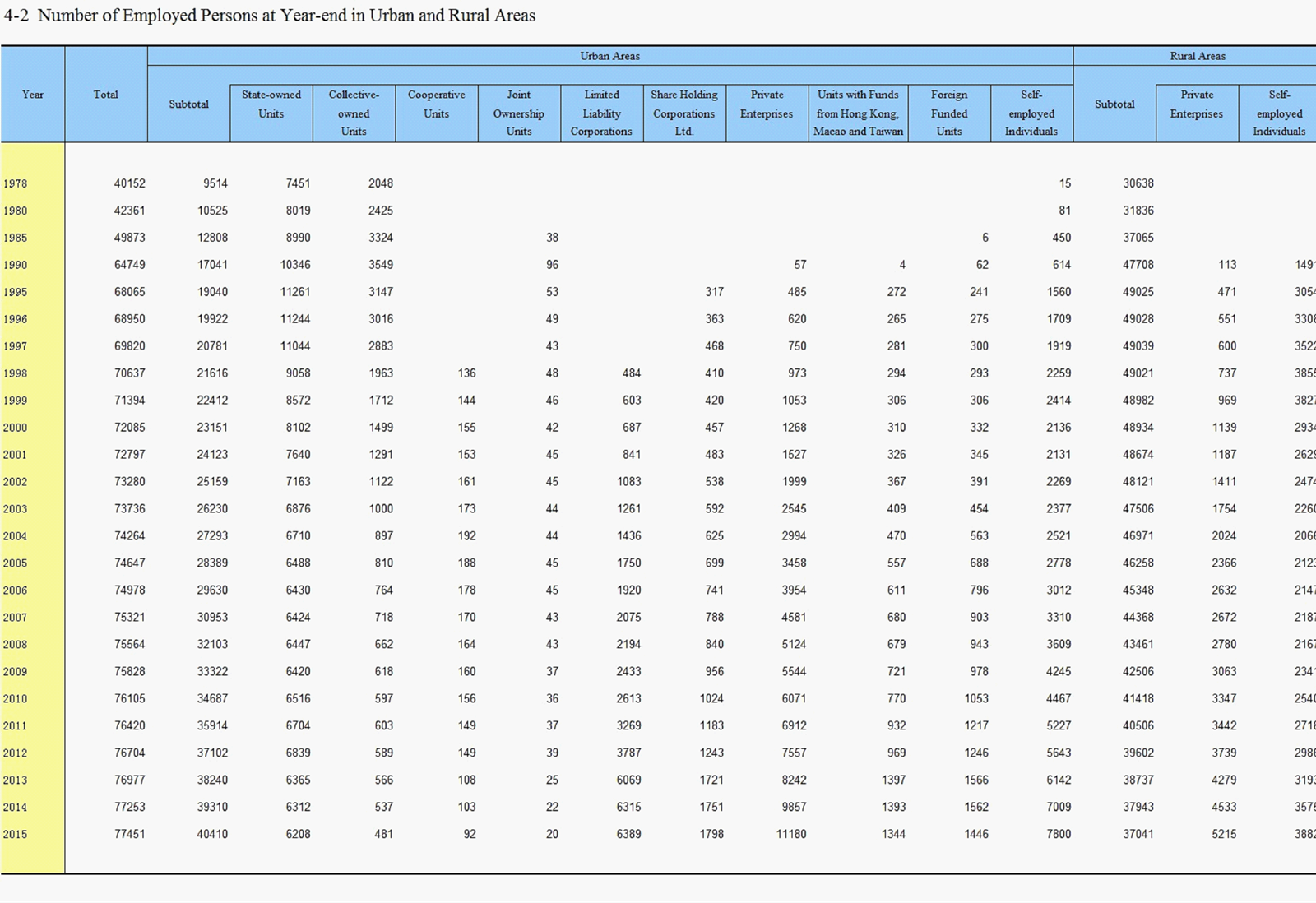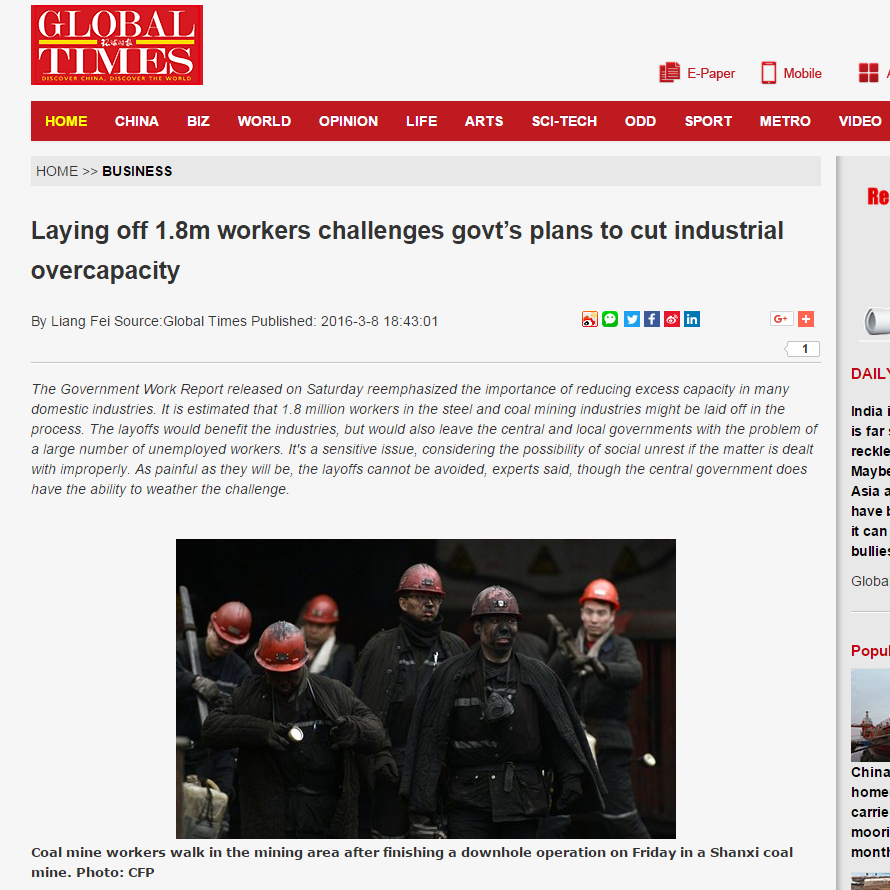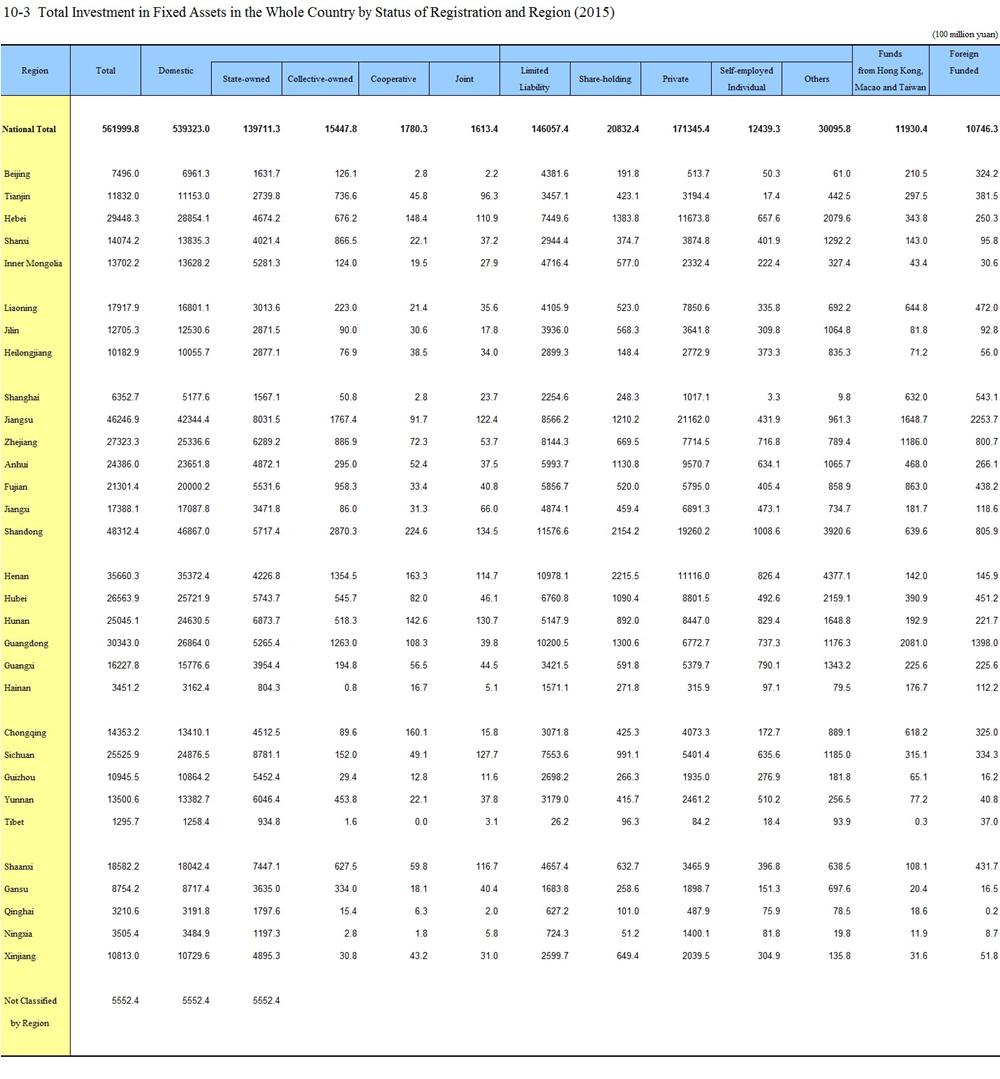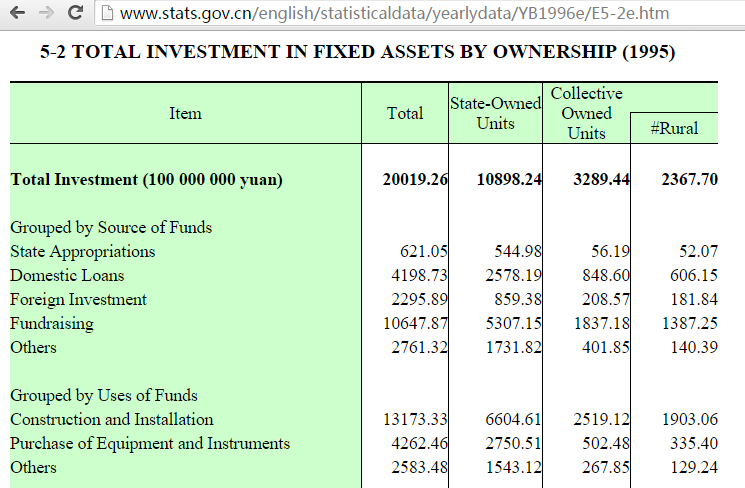Author: klifo
The rising China has drawn lots of attentions from all kinds of people across the political spectrum. Especially for these people who are still holding the banner of Marxism and revolution, the question of the social nature of China is of great importance. Among comrades from different revolutionary parties, there are quite different views about China.
Some of them claim that China has become a capitalist country and the ruling party has become a capitalist party. Of course, China is not a typical capitalist country compared to US, but capitalism with Chinese characteristic is still capitalism.
Some comrades have even gone much further. They have noticed the explosively growing economic activities of China abroad. China has invested a lot in other third world countries which have rich raw materials. This is not only done by government, the private company also join this “going abroad” crusade. So, these comrades conclude that, China has become not just a capitalist country, but also an imperialist country. And by the logic of imperialism, wars between old powers and new powers will be inevitable.
Despite that many people have recognized that China has become a capitalist country, there are still some people who have faith in China, because the ruling party is still called herself communist, and the name of the county is still “peoples’ republic”. In their view, the opening and reform which was initiated in end of 1970s is definitely towards capitalism, but there have always been resistances from the working people and the good members in the party, whose struggles have prevented the color revolution from happening. Thus, the public sector in China is still much larger than its counterparts in the western countries, and the non-capitalist party is more capable of developing the economy than almost all the ruling parties in the world. So these comrades object the notion of capitalist China. They regard China as something between socialism and capitalism, something transitional. And the transition might be reversed by the people and the healthy part of the party.
Not just the comrades outside of China have different views about China, but also the comrades inside. In the past 20 years, the view of Chinese revolutionary leftists about China’s social nature has changed greatly. And we have realized that how devastating it could be when the leftist can not develop a correct understanding of the nature of the society economically and politically. In the beginning, they thought China would become the colony of western powers. So they decided to fight against the decision of joining WTO and try to persuade the leaders to “turn left”. Several years later, the economic crisis broke out. After that, a rising China and declining US made many leftist change their position closer to the nationalists. The so-called China model has been enthusiastically advocated by the leftist. In their view, the reason why China can cope the crisis so well and develop so fast is because of the socialist elements in China, which means that China is not a capitalist county, but a socialist country or at least a successful mixture of the two.
It is the Marxist analysis of the society that lays the foundation of the political line. Without a proper understanding of the contemporary Chinese society, the communist movement in China cannot grow and advance. In this special occasion, I want to share some of our thoughts about it with you.
1, Is China a capitalist country?
Is China is a capitalist country? To answer this question, we have to find out what capitalism means first. In Das Capital, marx generalized two major features of capitalism.
Capitalist production is distinguished from the outset by two characteristic features.
First. It produces its products as commodities.The fact that it produces commodities does not differentiate it from other modes of production; but rather the fact that being a commodity is the dominant and determining characteristic of its products. This implies, first and foremost, that the labourer himself comes forward merely as a seller of commodities, and thus as a free wage-labourer, so that labour appears in general as wage-labour.
....
The second distinctive feature of the capitalist mode of production is the production of surplus-value as the direct aim and determining motive of production. Capital produces essentially capital, and does so only to the extent that it produces surplus-value.(Das capital III , Chapter 51. Distribution Relations and Production Relations)
If we strictly examine the economic aspect of China by Marxism definition, it can be easily found that:
Except for domestic work, the purpose of almost all the productions is to sell for money. The planning system was discarded since long time ago, and for most of the goods, it is now the market that determines what to produce and how to produce. Commodity production is the dominating form of the production in China. This is so obvious that everyone in the working class knows it.
If we categorize State-owned Units and Collective-owned Units as forms of public ownership, and thus these people who are working in the State-owned Units and Collective-owned Units as non-wage laboureres , the trend of turning people into wage laboureres is undeniable. According to the statistics of the National Bureau of Statistics of China, almost 100% of the urban population were working in the State-owned Units and Collective-owned Units at the beginning of the reform, whereas in 2015 only 16.5% of the urban population are working in these State-owned Units and Collective-owned Units. Private enterprises now employ a lot more people than SOEs.

As for the workforce in the countryside, the same process has been going on for many years. According to the statistics of the National Bureau of Statistics of China, the number of migrate workers has gone up to 281 million, making up more than one third of the entire working population. Most of them are working in the sweat workshops ,construction sites and low-wage service sectors. The collective social lives in the rural China have gone, leaving these isolated left-behind children and senior people suffering. Now the government is trying to privatize the land, which will cut the final connections of migrate workers with the mode of small production , and turn them into pure wage labourers, in terms of both economical position and class consciousness.
But even the role of these State-owned Units are suspicious. Because after the reform of SOEs since 1980s, many of these Stated-owned units have become companies which have to operate for profit and loss on their own accounts. Without a centralized planned system, these companies have been acting quite similar to the private companies. In order to survive, they have to increase the profit and lower their cost, which means they have to layoff many employees during difficult times. The so-called “iron-bowls”, which represent the stable positions in the SOEs, have been drastically decreased and in some sectors, even been completely eliminated and replaced by pure wage systems. Now only civil servants and people working in some of the state-run institutions can really say that they have “iron-bowls”.

Last year, Chinese government decided to layoff 1.8 million workers in coal and steal SOEs. This action stimulated intense social unrests in many places, some of the workers went to the street to protest. The fact that macro economic instability could cause mass layoffs in SOEs also reveals the real nature of the so-called socialist market economy.
Another aspect of these SOEs which really matters is that dispatched labour system has been widely adopted by many SOEs. In some SOEs, the percentage of dispatched labour has exceeded 60%. Why do the SOEs layoff employees and use dispatched labour? I think the answer is obvious to the people who have been living in capitalism for quite a long time.
3) Even if categorize State-owned Units and Collective-owned Units as forms of public ownership, which we highly doubt about, the investment of the whole society is more done by non-public companies. According to the statistics of the National Bureau of Statistics of China, the investment in fixed assets done by state-owned and collective-owned companies only account for less that one-third of the total investment in 2015, compared to over 70 percent in 1995. The decrease of the share of the investment in fixed assets done by state-owned and collective-owned by 230% reflects what has changed in the economic sphere of China in the last 20 years.


So we have to conclude that the productions in China are mostly driven by the eager for profit, the essence of which in Marxist term is surplus-value.
To sum up, the Chinese economy is quite compatible with Marx’s definition of capitalist production and the feeling of working people as well. If we respect the reality and be brave, the conclusion that China has become a capitalist country after 30 years capitalist reform should be drawn.
2, Is state capitalism a better mode of capitalism?
Although many comrades don’t deny that China is capitalist, they still try to identify China’s capitalism as state capitalism,and of course a better version of capitalism compared to Anglo-Saxon capitalism.
We don’t want to deny that China is state capitalism, given that the economical role of the state in China is much more powerful than its counterparts in western countries. The state still controls most of the financial capital and many key industries like energy and telecommunication. But what is the nature of the state capitalism? Is it better for the working people and something that working people should sacrifice their lives to defend? Let’s look at what Engels said about it:
In any case, with trusts or without, the official representative of capitalist society — the state — will ultimately have to undertake the direction of production. This necessity for conversion into State property is felt first in the great institutions for intercourse and communication — the post office, the telegraphs, the railways.
If the crises demonstrate the incapacity of the bourgeoisie for managing any longer modern productive forces, the transformation of the great establishments for production and distribution into joint-stock companies, trusts, and State property, show how unnecessary the bourgeoisie are for that purpose...
But, the transformation — either into joint-stock companies and trusts, or into State-ownership — does not do away with the capitalistic nature of the productive forces. In the joint-stock companies and trusts, this is obvious. And the modern State, again, is only the organization that bourgeois society takes on in order to support the external conditions of the capitalist mode of production against the encroachments as well of the workers as of individual capitalists. The modern state, no matter what its form, is essentially a capitalist machine — the state of the capitalists, the ideal personification of the total national capital. The more it proceeds to the taking over of productive forces, the more does it actually become the national capitalist, the more citizens does it exploit. The workers remain wage-workers — proletarians. The capitalist relation is not done away with. It is, rather, brought to a head. But, brought to a head, it topples over. State-ownership of the productive forces is not the solution of the conflict, but concealed within it are the technical conditions that form the elements of that solution.
(Engels Socialism: Utopian and Scientific III Historical Materialism)
The fact that Chinese government can cope with the crisis much more effectively through mass investment in infrastructure has demonstrated that state capitalism is a more advanced form of capitalism. But we should bear in mind that it was the government of US during and after the great depression which adopted the Keynesian policies for the first time in modern history. The change of policy in the end of 1970s was mainly driven by the crisis of state capitalism itself and the class struggle between working class and capitalist class. China had been privatizing its public sector very rapidly before 2008 , but after the crisis this process was slowed down. It is legitimate to say that it is the legacy of the socialist ear that protect China from falling into depression, but the state which is controlling that legacy is by no means in favour of any real socialist-oriented reform.
3, What is the class nature of the state?
According to Engels, the state capitalism is still a vehicle for the capitalist to exploit the working people because the state is capitalist state. But what if the state of China is not capitalist state but the people’s state, will it make state capitalism be more closer to socialism? Let’s discuss this matter a little bit.
As we all know, the ruling party in China is designated to the CPC by law. So we may have a look at the nature of CPC. The party consists of its members. And the class composition of the member could partially reveal the nature the party.
In the beginning of the reform, workers accounted for 18.73 percent of all the members, and peasants accounted for 46.94%. In 2009, workers only accounted for 8.9% of the party and peasants 30.8%. By the end of 2016, the share of worker members have dropped to 7.9%.(
Source :2016年中国共产党党内统计公报
http://cpc.people.com.cn/n1/2017/0630/c64387-29375750.html)

http://www.ccln.gov.cn/dangshidagjian/dangjian/djyj/103297.shtml
While the share of worker and peasant member is decreasing constantly, the percentage of the party member capitalist is growing. According to a survey about the capitalists, around one-third of capitalists are party members.( Source:统计表明我国私营企业家中的中共党员比例上升 http://news.sina.com.cn/c/2003-11-13/21522131323.shtml) Many could think it is because CPC changed its party constitution to allow capitalist to join the party, but the actual reason is that many capitalists are former party members who just didn’t quit the party after they have become capitalists.
And as for the peasant members, most of them are not poor peasants but rich peasants or capitalists who don’t have urban hukou(the household registration record in china). This situation can be shown by the percentage of migrate workers (peasant workers)in new party members. In 2016, CPC had 1.965 million new members, 5074 of whom are migrate workers. Although the 280 million migrate workers account for over one-third of the whole economically active population, they only account for 2.6% of the new members. Given that the majority of the peasant are now migrate workers , isn’t it so obvious that many of the peasant party members are not real peasants? They are more like capitalists in the rural areas. It is so obvious that the party doesn’t regard the working people as its mass base.
The more important development in China which could show the nature of the party even more evidently is the crackdown on the workers’ strikes and forbidding the workers form their own union. Most of these strikes were purely economic, didn’t involved any special political appeal. But for the sake of business, the state have to suppress these strikes and protect the interests of the capitalists. If the state really care about the welfare of the working people, will it do such things? What is the class nature of the current ruling party and state in China? I think any true Marxist knows the answers.
